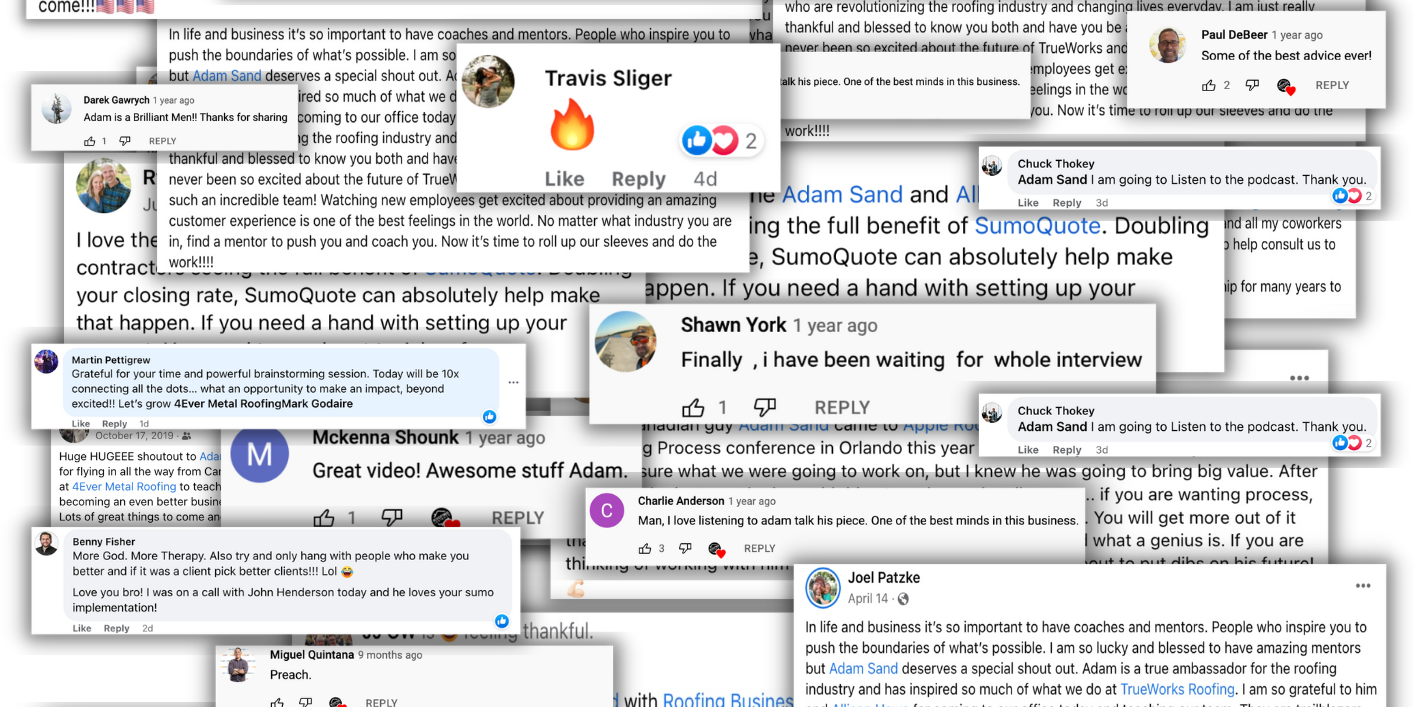Part 1: Growing a roofing company from $25 - $60 million with hubspot
Below is a conversation I had with ChatGPT 4 going over the financial modelling a typical $25,000,000 roofing executive must make when considering...
4 min read
Gary Miller : May 15, 2023 3:30:00 PM
Selecting the right CRM support partner can be a daunting task for businesses. Choosing the wrong partner can waste time, money, and effort. To help you choose your CRM partner wisely, we will explore the key factors to consider when selecting a CRM partner.
The first factor to consider when selecting a CRM support partner is their experience and expertise in the field. You want to work with a partner with a proven track record of successfully implementing and supporting CRM solutions for businesses like yours. Look for a partner with experience working with companies in your industry. They will be better equipped to understand your business's specific needs and challenges and support your business development.
Also consider the partner's expertise in the CRM solution you use or plan to use. For example, if you are using Salesforce, you want to work with a certified Salesforce partner with experience implementing and supporting Salesforce solutions. The same goes for other popular CRM solutions like HubSpot, Microsoft Dynamics 365, and Zoho CRM.

The next factor to consider is the range of services the CRM support partner offers. While some partners may specialize in implementation or customization, others may provide a full suite of services, including ongoing support and training. Consider the most important services to your business and ensure the partner you choose offers those services.
It's also important to consider the partner's approach to service delivery. Do they offer a one-size-fits-all solution, or do they take a customized approach tailored to your specific needs? Look for a partner that takes the time to understand your business and provides a customized solution that meets your unique requirements.
Another critical factor to consider when selecting a partner is their reputation in the industry. Look for partners with a positive reputation for excellent service among their clients and peers. You can check online reviews and ratings to get a sense of a partner's reputation, but it's also essential to ask for references and speak with past clients directly.
When speaking with references, ask about the partner's level of expertise, ability to meet deadlines, and overall level of customer service. You may also want to ask about any challenges or issues that arose during the project and how the partner handled them.

Effective communication and collaboration are essential when working with a partner. Look for a responsive and communicative partner that takes a collaborative approach to working with your team on your CRM project. The partner should be willing to listen to your needs and concerns and provide regular updates on the project's progress.
It's also important to consider the partner's approach to training and knowledge transfer. Ensure the partner is willing to train your team on using the CRM solution effectively and provide ongoing support as needed.
Cost is always a factor when selecting a CRM support partner, but it should not be the only factor. Look for a partner that provides a good balance of cost and value. A low-cost partner may be tempting, but if they don't offer the level of expertise and service you need, you could end up paying more in the long run to achieve your CRM success.
Consider the partner's pricing model and ensure it aligns with your budget and goals. Look for partners offering transparent pricing and willing to work with you to develop a solution that meets your needs within your budget.
Consider the partner's ability to scale and adapt to your changing needs. Your business will evolve, your sales team may grow, and your CRM needs will change accordingly. Look for a partner that is flexible and can adapt to these changes. The right CRM partner should be able to offer scalable solutions that can grow with your business.
Consider the partner's approach to customization and integration. Ensure they have experience integrating your CRM solution with your business's other systems and applications. This will ensure your CRM solution can work seamlessly with your existing technology stack and support your overall business processes.
Another essential factor to consider is the technology partner's level of support and maintenance. Ensure the partner provides ongoing support, including help desk services, software upgrades, and bug fixes. They should have a well-defined support process and be responsive to your support requests and business needs.
Consider the partner's approach to maintenance and upgrades. Ensure they provide regular updates and patches to the CRM solution to remain secure and up-to-date. They should also be able to provide advice on best practices for maintaining and optimizing your CRM system.

Data security and protection are critical when it comes to CRM solutions. Look for a partner that takes data security seriously and has appropriate security measures to protect your sensitive data. A great technology partner will have well-defined security policies and procedures and use encryption and other security technologies to protect your data.
Consider the partner's approach to innovation and their vision for the future of CRM. Look for a partner that is forward-thinking and keeps up with the latest trends, technologies, and new software in the CRM industry. They should have a clear vision for the future of CRM and be able to provide guidance on how your business can stay ahead of the curve.
Consider the partner's approach to innovation and research and development. They should invest in research and development to continually improve their CRM solutions and services.
Another vital factor to consider when selecting a CRM partner is their approach to training and onboarding. Implementing a new CRM system can be a significant undertaking, and having a partner that can help ensure a smooth transition is essential.
Look for a partner that provides comprehensive training and onboarding for your team, including technical and user training. They should also be able to provide ongoing support and training as needed to ensure your team is always up-to-date on the latest features and best practices.
Consider the partner's knowledge of your industry and how it can benefit your business. A partner with experience working with companies in your industry can provide valuable insights into industry-specific best practices and solutions. They should be able to offer guidance on using your CRM solution to meet your industry's unique needs and challenges, streamlining processes along the way. At Roofing Business Partner we specialize in helping roofing companies use CRM technology to grow their business.
Finally, consider the cultural fit between your business and the CRM support partner. Look for a partner that shares your business values and culture. They should be able to work collaboratively with your team and provide a positive and productive partnership.
Selecting a CRM support partner is a crucial decision that can significantly impact the success of your CRM implementation and ongoing support. By considering the factors outlined in this article, you can choose a partner that has the experience, expertise, and services you need to get the most out of your CRM solution.
When selecting a partner, remember to prioritize effective communication, reputation, flexibility, support, maintenance, data security, and innovation. With the right CRM support partner by your side, you can maximize the value of your CRM solution and improve your overall customer relationship management and employee productivity.
Ultimately, the right CRM support partners should be trusted advisors that can help you achieve your business goals and drive growth. By taking the time to select the right partner, you can build a long-lasting and mutually beneficial partnership that can help your business succeed now and in the future.

Below is a conversation I had with ChatGPT 4 going over the financial modelling a typical $25,000,000 roofing executive must make when considering...

Discover how smart workflow automation is streamlining bookkeeping, syncing platforms like QuickBooks and HubSpot, and transforming operations with...

Discover how a structured CRM audit can reveal hidden inefficiencies, eliminate costly errors, and help your roofing company scale with confidence.